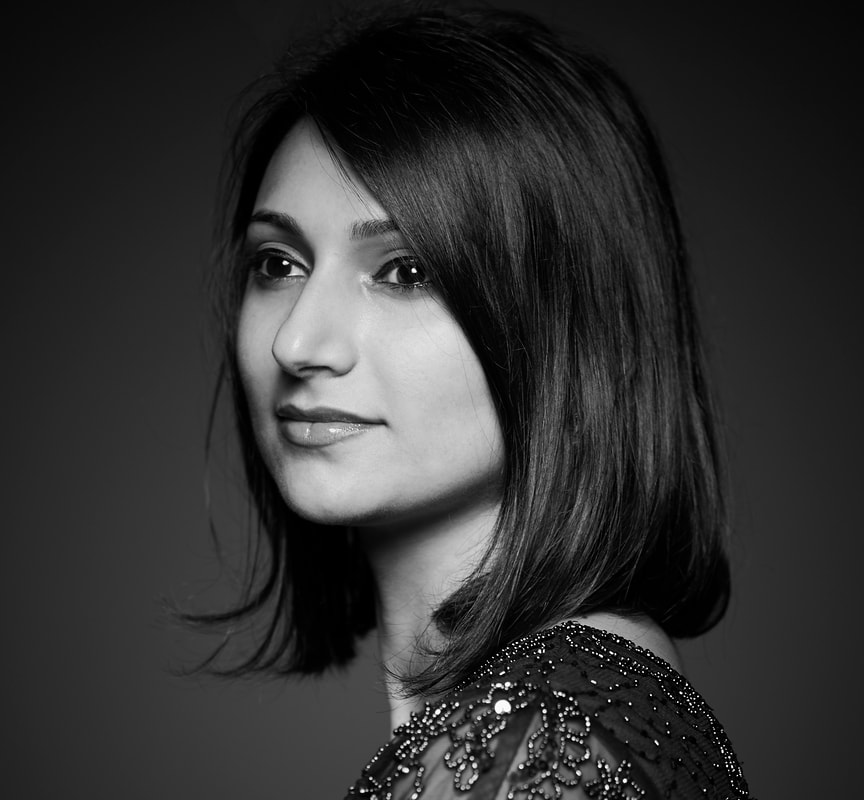Odd Voice Out
Sabah Carrim Interview8/29/2020 Sabah Carrim has authored two novels, namely Humeirah and Semi-Apes, both set in Mauritius where she was born. Her short stories have been shortlisted and published in various competitions organised internationally by Commonwealth Writers, Goethe Institute South Africa, and recently by the Bristol Short Story Prize. Her nonfiction was also a semi-finalist in the Gabriele Rico Challenge for Creative Nonfiction, and is scheduled for publication in an upcoming issue of Reed Magazine. Sabah was invited to be judge of the African Short Story Award, as well as to deliver the keynote speech on Cultural Stereotypes in African Literature at the African Writers Festival held in Nairobi in 2019. Sabah is also a law lecturer, and holds a PhD in Genocide Studies and Prevention, with a focus on the atrocities of the Khmer Rouge era. Here we discuss her delightful coming of age story 'Size of Rice', featured in our 'Odd Voices' short story collection.  You are one of the most experienced authors in our collection. How long have you been writing and what has been your proudest achievement so far?
I started writing when I was very young. But professionally, I started working on my first novel when I was 16, and then completed it later at 28. My proudest achievement so far has been a series of events last year where the short stories I wrote were shortlisted in various competitions across Africa, Europe, and the US. What does a typical writing session look like for you? I write poetry almost anywhere, because it can be done very quickly. If I work on a novel or a short story then I usually do it at home in my study, or in a noisy café—I like the movement around me, although I don’t like to take an active part in it. Once I am done, I usually spend hours looking at the work in the course of polishing it. And by this, I really mean hours. I can write a poem in twenty minutes but spend an entire day polishing it. How do you approach writing YA fiction with a teenage protagonist as opposed to writing fiction that’s about and aimed at adults? I try to recall memories of my teenagehood when I write YA fiction. I used to keep a diary where I would record my thoughts daily, and maybe because of that and a few reasons I may not entirely aware of, I can recollect those days very vividly. Writing for adults just means I can make direct and indirect references to the literature I read today, and introduce the more mature thoughts I have now compared to when I was a teenager who had many more questions than answers. Can you talk about residing and setting stories in Mauritius? What aspects of the island and its culture are you most keen to convey to readers from all over the world? In most of the stories I have written about Mauritius, I have dealt with my own experiences growing up there as a Muslim, and as a person of indian origin, and my main focus has been on decrying the superfluity of religion and culture that complicates our lives unnecessarily, and makes us lose focus on what I deem to be the bigger picture of everything else. How did you go about creating Binti’s distinctively neurotic voice? It was based on my own neuroses as a child growing up with a madrasa education where I was told that the hair on any part of my body should not be longer than a grain of rice. I remember how this and other similar teachings haunted me for days, especially because I tended to push the logic further, and end up wondering as Binti does in the story, what type of rice my teacher was referring to. Of course back then I didn’t realize that that would be good material for a short story. Do you think Muslim teens (and other religious youth) have a tendency to over-think their faith and worry about whether they are getting it right? Not necessarily. I realized with time that the reason those questions haunted me and not my other friends and classmates who were given the same teachings, was that they didn’t necessarily break their head over such matters. I think it’s only when one pushes the logic of all these teachings to the end that one realizes how nonsensical they are, but more often than not, parents and teachers are not equipped for such a challenge, and end up criticizing and humiliating the child or the student for asking so many questions. It’s rare that the hormonal and bodily changes of female puberty are portrayed in teen fiction. Do you think there’s a pressure on young girls not to talk about their growing pains and how they are affected physically and emotionally? I don’t think so. I just think many writers are trying to be politically correct, and write literature that would appeal to a lot of people. (The existence of social media where everything written is instantly posted to seek ‘likes’ doesn’t help in this respect.) In the process, I think many of us are not taking our roles seriously as thinkers, as the marginals, as those who ought to be daring enough to say what’s politically incorrect, and make people—our readers—shift uncomfortably in their seats, and encourage them to put into question all the dogmas and prejudices that they have embraced effortlessly. Writing about the growing pains of young girls is not a topic that would necessarily please most readers—as it would certainly make many shift uncomfortably in their seats, wondering why the author had to talk about such personal and private matters, or why he or she couldn’t have just stuck to a ‘pleasant’ topic. (People often say that to writers who write about sensitive matters.) What advice would you give to other writers looking to represent culture and faith within their fiction? Be daring. Take risks. Be politically incorrect, and by this, I mean you should go beyond just using unacceptable swear words. Trust me, it’s not enough. Do more than that. Go all the way. Write about that which will make people rethink what they’ve taken for granted.
0 Comments
Leave a Reply. |

